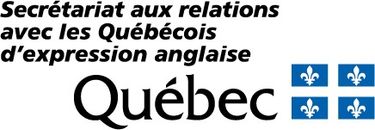Human rights lawyer (Quebec); Associate Professor (professional), Max Bell School of Public Policy, McGill University and Faculty of Law
January 2024
You are both a professor and a human rights lawyer. Could you describe your approach to conducting research in both roles?
I have been a lawyer longer than I have been a professor, and I try to bring the practical aspects of my work and experience into the university setting, and leverage the university setting to develop a more practical understanding of how human rights affect people in real life. My law practice in Montreal is primarily advisory and consultancy work and, whenever I can, I engage student researchers to support my work and to give them the chance to have meaningful experiential opportunities with client contact.
Tell us about your work related to the rights and interests of Quebec’s English-speaking community.
I often comment on and publicly discuss government policies that adversely impact English-speaking and allophone communities, including the infamous “Charter of Values,” Bill 21 (secularism), Bill 96 (severe restrictions on the use of English in Quebec) and, more recently, the Quebec government’s efforts to marginalize English language universities in Montreal through changes to tuition.
Many cases have impacted people with precarious immigration status whose first official Canadian language is English. In one case, an Ethiopian English speaker and his wife had come to Quebec on a student visa. His child was born here but couldn’t access Medicare because, although the child was a citizen, the parents were not. As a result of special arrangements with France and Belgium, which were exempt, this policy disproportionately impacted people in Quebec from the global South and people whose first language is English. A coalition of lawyers and civil society demanded a change to allow children who are Canadian citizens born in Quebec to access Medicare. The Quebec government finally agreed, but the whole process took 10 years and serves as an example of the exclusionary impact of these policies on those who weren’t born in Quebec and aren’t part of the “preferred” immigrant group.
I’m also involved with the Gender stream in the Quebec Homelessness Prevention Policy Collaborative (Q-HPPC), a partnership between McGill and the Old Brewery Mission. Here, I collaborate with Shield of Athena family services, a multilingual organization supporting women fleeing conjugal violence, many of whom speak English as their main European language. Their children often enter the French-language system, but the mothers face challenges accessing services or housing because of communication barriers. Over and over again, we see the barriers that intersect between people whose immigration status is precarious and their linguistic status and immigrant status, and the marginalization of people who fall into both categories.
When it comes to your research, do you have a particular audience?
There’s the university community, which benefits from insights into practical developments, and then there’s the broader public, who I aim to engage with by conveying the conversations from scholarly literature in an accessible way. I also do work internationally, often connecting international human rights standards to what’s going on in Quebec.
Considering recent Quebec language policy developments, what are some key legal considerations and potential implications for the English-speaking community?
Access to justice is a major issue in Quebec, and increasingly for the English-speaking community, in part because of Bill 96, which I mentioned earlier. The growing marginalization of English speakers in Quebec speaks to a real change in the constitutional architecture of this country that is being unilaterally imposed by Quebec. I believe it is not constitutional, but it is going to take a long time before any court is brave enough to say so.
An in-Quebec policy is the significant legal issue of interculturalism, which plays a significant role as a social vehicle through which language rights are diminished. I do believe it’s important that Quebec remain distinct and French maintain a protected status. By directly linking interculturalism to identity issues, people are encouraged to feel threatened, thereby relegating a historic minority in Quebec to the status of “other.”
The invocation of the notwithstanding clause in cases such as Bill 96 and Bill 21 is also a major concern. This clause grants Parliament and legislatures in Canada the power to override certain portions of the Charter of Rights and Freedoms. Such an escape clause from basic rights isn’t permitted in international law or in any of our international treaties, thus placing Canada in direct violation of our international human rights obligations. Bill 96 has an extensive impact on all interactions with government, the private sector, and many non-profit organizations. Not only is access to the English language restricted, but the notwithstanding clause also violates one’s right to a fair trial, along with several other basic rights, such as the right to be free from unreasonable search and seizure. This represents a huge overreach, and has paved the way for a popular strategy making the abrogation of fundamental rights acceptable in Quebec. Unfortunately, it has also normalized the fundamental violation of the rights of English speakers in Quebec.
How can you address these issues in your legal and research work?
I continue to emphasize the dangers of nationalism and of disconnecting culturalism policies from human rights. I do media work to raise awareness, and have also contributed to academic publications and written a monograph on human rights systems.[1]
In your experience, what are effective ways of educating the public about their rights and the potential compromises these rights might face?
It’s all about effective communication, refining your key messages, possessing both the capacity and expertise to disseminate them effectively, and managing social media interactions. Engaging in controversial issues obviously creates a situation where you become a target, and this has become a much more intimidating prospect in the current environment. I am hopeful, though, that new federal legislation on online harms that has just been tabled will start to address some of these serious threats to human rights defenders, especially women, who tend to be disproportionately targeted online.
Do you have any other resources to recommend to people to learn more about their rights?
Some organizations in Quebec doing a great job are Educaloi in terms of general access to legal information, Equitas on human rights education, and Doctors of the World on public health care. Others are Centres de justice de proximité, a series of information clinics near courthouses in Quebec that provide legal information for free, and the Center for Research-Action on Race Relations, which does a lot of work on the intersection of race and language.
[1] See https://www.rights-law.net/publications and ORCID



